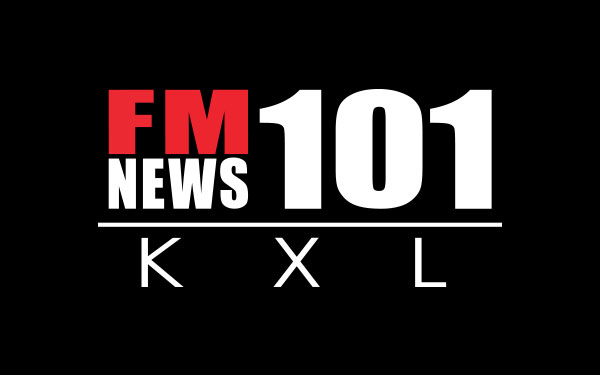Whistleblowers sounded alarm about nuclear deal pushed by Trump advisers: Report

narvikk/iStock(WASHINGTON) — Multiple whistleblowers sounded alarms about a plan backed by close advisers to President Donald Trump to transfer sensitive nuclear technology to Saudi Arabia, according to a new report released by House Oversight Committee Chairman Elijah Cummings on Tuesday.
House Democrats, who have been examining the issue for months, said they plan to investigate whether people close to Trump sought to profit by using White House connections to gain federal approvals.
“Based on this snapshot of events, the Committee is now launching an investigation to determine whether the actions being pursued by the Trump administration are in the national security interests of the United States, or, rather, serve those who stand to gain financially as a result of this potential change in U.S. foreign policy,” wrote Cummings, a Maryland Democrat.
The proposal, which began as a bid to sell nuclear reactors to the Saudis under the direction of Trump adviser and fundraiser Tom Barrack, the report said, was initially pushed by former national security adviser Michael Flynn. Cummings’ office has previously raised concerns that a consulting business Flynn once ran appeared to have a financial interest in the idea.
New testimony and documents collected by House investigators, summarized in Tuesday’s report, suggest the plan still had support within the White House after Flynn was fired in February of 2017, ahead of his conviction for lying to federal agents about his talks with Russians. And internal emails show that proponents of the plan continued to push for it even as career national security officials worried it violated administration protocol and ethics rules.
“The whistleblowers who came forward have expressed significant concerns about the potential procedural and legal violations connected with rushing through a plan to transfer nuclear technology to Saudi Arabia,” Cummings wrote. “And they have warned about political appointees ignoring directives from top ethics advisers at the White House who repeatedly and unsuccessfully ordered senior Trump Administration officials to halt their efforts.”
As part of his new investigation, Cummings plans to send document requests to the White House, a half-dozen federal departments and agencies, and the private companies involved in promoting the nuclear proposal. He also hopes to interview the individuals who worked to advance the plan inside the White House.
Those who supported the plan to recruit U.S. companies to build nuclear power plants in the Middle East called it a “Marshall Plan for the Middle East,” and said it would help American allies develop nuclear programs to check Iran’s power in the region.
But one major proponent of the idea was no stranger to scandal. Robert “Bud” McFarlane, 81, who resigned as President Ronald Reagan’s national security advisor during the Iran-Contra scandal and later pleaded guilty in 1988 to charges involving the withholding of information from Congress, has been a global consultant in the security and energy sectors in recent years.
McFarlane is the co-founder of IP3, a company for which Flynn reportedly consulted during his time on the Trump campaign and transition.
One week after Trump’s inauguration, McFarlane sent Flynn a pair of memos to initiate action on the plan and recommended Trump appoint Barrack, who chaired Trump’s inaugural committee and has longstanding financial ties to the Middle East, as a special envoy responsible for leading the project and coordinating among different agencies.
“Tom Barrack has been thoroughly briefed on this strategy and wants to run it for you,” reads one memo McFarlane drafted for Flynn to present to Trump. According to Cummings’ report, Flynn forwarded the memos to White House staff and told them to “prep a staff packet to go to the POTUS.”
Around the same time, the House report says, Flynn aide Derek Harvey, the National Security Council’s senior director for Middle East and North African affairs, told NSC aides he had prepared at Flynn’s direction a “new strategy” for the Middle East featuring a “regional and economic energy plan” and attempted to include language about plans to build “40 nuclear power plants” in the Middle East to a briefing package for Trump ahead of a planned called with King Salman of Saudi Arabia.
But the idea raised red flags, the House report says, with some security council officials and White House legal advisers believing the plan could violate laws governing nuclear cooperation between the United States and other countries, such as a provision of the U.S. Atomic Energy Act that requires Congress review any proposal to transfer nuclear technology.
Those White House officials tried to persuade more senior advisers to abandon the idea, alleging the proposal from Flynn and his associates was a “scheme for these generals to make some money,” the House report says, and days later, the National Security Council legal adviser John Eisenberg instructed staff to stop working on the plan.
Flynn’s White House tenure proved to be brief. He was fired in February of 2017, having served in the administration for less than a month, after it was revealed that he misled then-Vice President-elect Mike Pence about his discussions with the Russian ambassador Sergey Kislyak during the transition.
But efforts to further the plan in the White House continued even after Flynn’s departure, the report says. In March of 2017, Harvey helped draft a public statement about Trump’s meeting with Prince Mohammed bin Salman, then Saudi Arabia’s deputy crown prince, that mentioned a new U.S.-Saudi energy and technology investment program – a reference that caught some officials off guard.
“What the hell is going on?” one senior Trump official asked National Security Council staff, according to Cummings’s report.
In a meeting the next day, the report says, KT McFarland, then the National Security Council deputy director, again raised the “Middle East Marshall Plan,” and said that Trump told Barrack he could lead the effort as long as he wasn’t paid for the role.
Harvey persisted as well, the report says, directing National Security Council staff to add language referencing the plan into talking points for Trump ahead of a meeting with Egyptian President Abdel Fattah al-Sisi. According to the report, H.R. McMaster, who had replaced Flynn as national security advisor, objected.
“Nobody should work on this anymore,” he told his staff in late March.
Harvey, who left the White House in July of 2017 and now works for Rep. Devin Nunes, the senior Republican on the House Intelligence Committee, did not respond to requests for comment at the time of publication. But outreach to the White House about the plan continued after Harvey’s departure as well.
Fran Townsend, a homeland security advisor for President George W. Bush – who also served on IP3’s board – emailed then-White House homeland security advisor Thomas Bossert about the Middle East nuclear plan, including a white paper authored by Barrack, and a letter to the Saudi Arabian crown prince signed by advocates for the program along with leaders of six energy companies, according to documents attached to the report.
And someone else from IP3 – an individual who is not identified in the House report – reached out in April of 2017 to Vice President Mike Pence’s national security team, a contact that was reported to the National Security Council legal adviser’s office.
ABC News has contacted the White House, Harvey and Barrack for comment. ABC News has also reached out to spokespeople for former White House officials Flynn and McFarland and sought comment from several people with past or current association to the company IP3, including McFarlane, Towensend and attorneys Alan Dunn and Michael Summersgill. ABC News has also sought comment from the energy firms Westinghouse and Exelon.
None of them have agreed to speak or provided a response at the time this report was published.
Cummings staff believes the idea is still circulating within Trump administration. Just last week, President Trump met with American nuclear energy CEOs about exporting their technology to other parts of the world, though it remains unclear if a Saudi sale was discussed.
Chris Crane, the president and CEO of Exelon Corporation, the country’s largest nuclear operator, said the meeting was a conversation about the U.S. nuclear industry and the need to “maintain a leadership position” in exporting their technology.
“He was very supportive,” Crane said of Trump last week. “We’re going to continue dialogue with the administration.”
Copyright © 2019, ABC Radio. All rights reserved.
You Might Also Like



